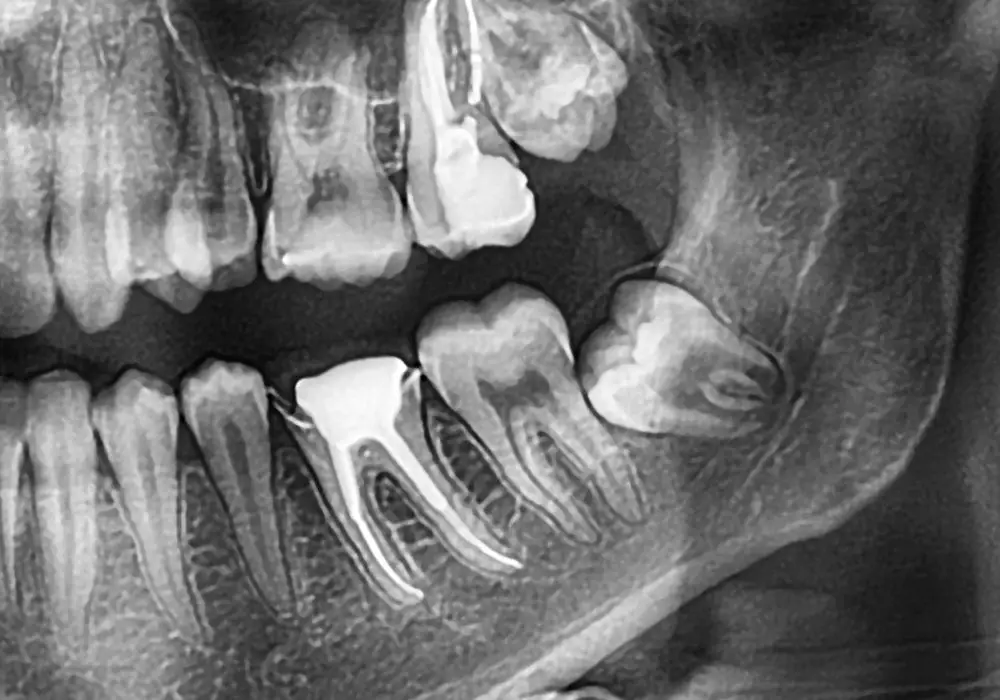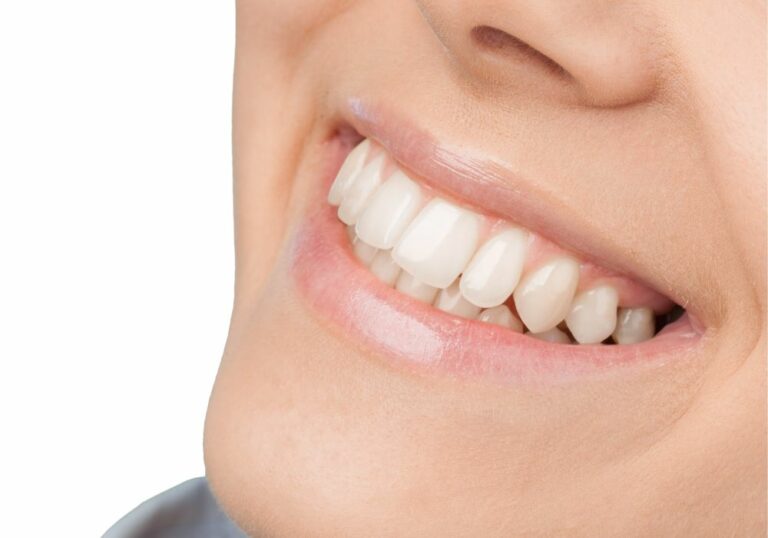Wisdom teeth, also known as the third molars, are the last set of teeth you will grow as you age. They usually come in when you’re in your late teens to early twenties and are sometimes seen as a rite of passage into adulthood.
As significant as they are, wisdom teeth don’t always erupt as easily as other adult teeth do. They can cause complications as they emerge and may have to be extracted to keep the other teeth safe from infection.
So, what happens if you don’t remove wisdom teeth? This depends on the reason your doctor recommended an extraction. If it were to stop pain or infection from spreading, you would only worsen your situation if you delay extraction. However, if extraction was recommended as a preventive measure, you may or may not face dental issues in the future.
Let’s now detail events that might follow the failure to remove wisdom teeth.
What Happens If You Don’t Get Your Wisdom Teeth Taken Out?
According to the Dental Research Journal, up to 37% of people worldwide either don’t have their complete set of wisdom teeth or don’t have them at all. Those who develop these third molars often go through some level of pain, swelling, and jaw stiffness, which although might not last very long, can cause unbearable pain.
Sometimes, the pain and swelling do not go away but only worsen. This may be a sign of an infection or a dental complication requiring you to extract the emerging teeth as soon as possible.
Before discussing some complications that could arise from not removing your wisdom teeth, let’s look at why your dentist may recommend extraction in the first place.
Reasons Why Your Doctor May Recommend Wisdom Teeth Extraction
Not all wisdom teeth are problematic; some grow without any issues. However, if your dentist suggests that you go in for an extraction, here are some possible reasons why;
1. Impacted Teeth
Third molars that are trapped below the gum line because they don’t have enough space to emerge are called impacted wisdom teeth. These impacted teeth often cause pain, swelling, and other dental complications.
Some impacted wisdom teeth may grow horizontally or at an odd angle due to the lack of space, causing more pain in your jaws. As such, your doctor will most likely recommend an extraction to stop the pain.
2. Overcrowding
If your wisdom teeth try to erupt when you don’t have enough gum space to accommodate them, they may cause other teeth around them to become loose and wiggly. This will cause them to shift from alignment and change their position.
Overcrowded teeth often cause the entire dentition to become crooked, giving it an off appearance. If your wisdom teeth struggle to find space, they may try to displace other adult teeth. Your doctor will advise that you get them removed to avoid complete misalignment in your dentition.
3. Preventive Measures
Finally, sometimes your wisdom teeth may have erupted without causing any major dental issues, but your oral surgeon will recommend that you get them removed anyway. This recommendation might come as a preventive measure to avoid complications in the future.
What Happens If I Keep My Wisdom Teeth?

If you ignore your doctor’s advice and decide to keep your wisdom teeth, here are some repercussions you may have to deal with in the near future;
1. Cysts
Wisdom teeth usually develop in sacs which can get filled up with fluids in dental complications. These fluid-filled sacs are called cysts and can cause significant damage to your teeth, nerves, and jaw bone if they burst unexpectedly.
If left unattended, these cysts can also cause benign tumors to develop, which may need the removal of tissue and bone to treat.
2. Damage To The Surrounding Teeth
If a wisdom tooth is left to grow at an odd angle, it may cause the surrounding molars to shift, become loose, or develop certain infections. The oddly growing third molar can create pressure that affects the other teeth, causing severe pain.
Besides pain, the teeth surrounding the third molars can also start to develop bite problems. This could be overbite, underbite, misalignment, crooked teeth, or other conditions needing expert orthodontic care.
3. Cavities
Wisdom teeth are often the last teeth at the back of your mouth. Their position makes them harder to clean when brushing or flossing. This increases the chances that you might develop cavities as a result of not regularly cleaning them.
Additionally, wisdom teeth can cause your gums to swell, creating a pocket that can quickly fill with bacteria and allow cavities to form. These cavities will eventually lead to tooth decay and permanent tooth damage if ignored for too long.
4. Gum Infections
The presence of abnormally growing wisdom teeth may make it difficult to clean your gums, increasing the risk of developing gum disease. If left unextracted, your third molars may cause an inflammatory gum disease called pericoronitis.
5. Sinus Issues
Your upper wisdom teeth are closely connected to your sinuses. While growing out, their roots can put pressure on your sinus area, causing congestion, sinusitis, or severe and frequent headaches.
If the wisdom teeth in your upper jaw develop an infection, it may also spread to the sinuses, worsening your condition.
What Is The Wisdom Teeth Removal Procedure?
Wisdom teeth extraction is a relatively standard dental procedure almost always carried out as an outpatient procedure. This means you will go home on the same day as the surgery and will not need to spend the night at the hospital.
Depending on the type of procedure to be carried out, your dentist will administer a local anesthetic or a general anesthetic to keep you numb and minimize the pain. The procedure can also take anywhere from 20 to 45 minutes, depending on the state of the wisdom tooth.
If the wisdom tooth has not emerged at all, your oral surgeon will need to make a small incision to expose the tooth. However, if the third molar is partially erupted, the dentist will proceed with extraction.
You might feel some pressure during the extraction, but you should not feel any pain until the anesthetic has worn off hours after the procedure.
What Happens After Wisdom Teeth Extraction?
If an incision was made to extract your third molar, the dentist would stitch your gum after the procedure. People react to anesthesia differently, and your sedation may take a few hours to completely wear off.
Your dentist may give you a dental gauze to bite on, which minimizes bleeding and helps blood clots form. Blood clots are part of the healing process, and you must try not to remove or dislodge them as this will delay your healing process.
It is best to stay away from food during this period as you may get nauseous. Over the next 24 hours, it is also best that you stick to liquids and juices before moving on to soft food that is easy to chew and swallow.
Your dentist will also prescribe antibiotics and over-the-counter pain medication to ease your discomfort and reduce the chances of developing an infection. You must follow your doctor’s instructions concerning dosage and other after-care tips to make a full recovery.
What Are Some Potential Side Effects of Getting My Wisdom Teeth Taken Out?
You don’t go through wisdom teeth extractions every day, so your body will need some time to recover. Here are some possible side effects you may experience right after you’ve had your third molars removed;
- A large percentage of people experience swelling in their jaws and cheeks and may not be able to open their mouths fully for a few hours. Your jaw might be stiff and uncomfortable, and your gums may be inflamed.
- Besides the swelling, you may also feel some pain after the sedation has worn off. This pain can easily be managed using the medication your doctor prescribes and should gradually lessen as the days go by. However, if the pain worsens, immediately contact your dentist for a post-operative appointment.
- You will experience bleeding due to the nerves and blood vessels affected during the procedure. While you may use gauze for the bleeding, you shouldn’t have to use it for long as it stops after a few hours. Prolonged bleeding may be an indication of infection or other complications.
- Due to the sedation, your tongue and face may remain numb after the procedure. This numbness should wear off gradually, and you should regain full sensation in your face and lower jaw within a few hours or, at most, days.
- You may also experience bad breath and a foul taste in your mouth right after wisdom teeth removal. These should only last a couple of hours or days. Any more, and you may be suffering from an infection.
Conclusion
Wisdom teeth often cause certain complications that cause you to go in for an extraction. These complications include impacted teeth, misaligned teeth, or crooked teeth.
If you refuse to take them out, you’re at risk of developing infections, gum diseases, sinus issues, cavities, and other conditions.
Wisdom teeth extraction is a low-risk procedure that could leave you with some swelling, numbness, and pain. However, these symptoms should dissipate after a day or two.







